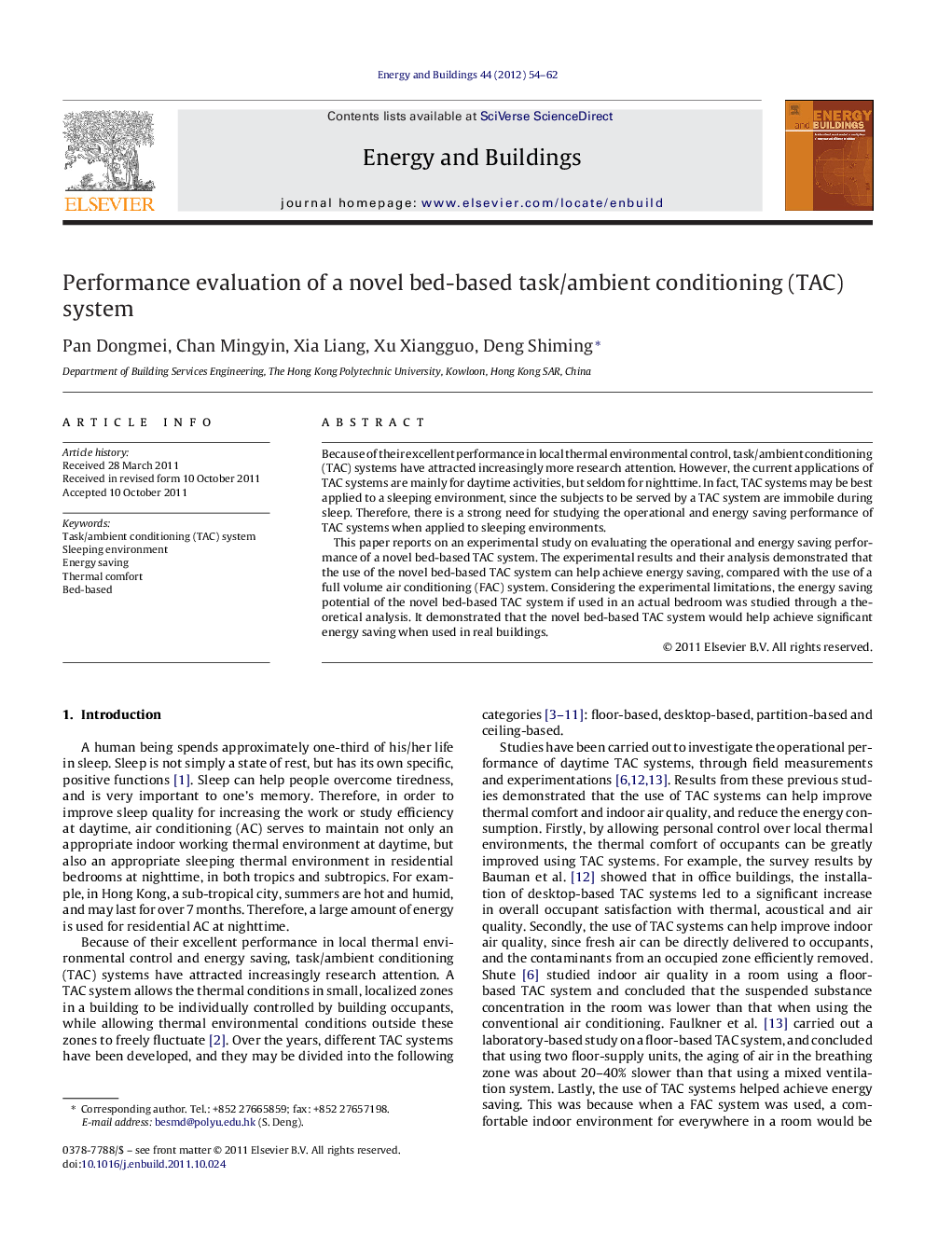| کد مقاله | کد نشریه | سال انتشار | مقاله انگلیسی | نسخه تمام متن |
|---|---|---|---|---|
| 264026 | 504089 | 2012 | 9 صفحه PDF | دانلود رایگان |

Because of their excellent performance in local thermal environmental control, task/ambient conditioning (TAC) systems have attracted increasingly more research attention. However, the current applications of TAC systems are mainly for daytime activities, but seldom for nighttime. In fact, TAC systems may be best applied to a sleeping environment, since the subjects to be served by a TAC system are immobile during sleep. Therefore, there is a strong need for studying the operational and energy saving performance of TAC systems when applied to sleeping environments.This paper reports on an experimental study on evaluating the operational and energy saving performance of a novel bed-based TAC system. The experimental results and their analysis demonstrated that the use of the novel bed-based TAC system can help achieve energy saving, compared with the use of a full volume air conditioning (FAC) system. Considering the experimental limitations, the energy saving potential of the novel bed-based TAC system if used in an actual bedroom was studied through a theoretical analysis. It demonstrated that the novel bed-based TAC system would help achieve significant energy saving when used in real buildings.
► A novel bed-based task/ambient conditioning system was developed.
► The operational and energy saving performance of the novel bed-based TAC system used in an experimental bedroom was experimentally investigated.
► The use of the novel bed-based TAC system can help achieve energy saving, compared with the use of a full volume air conditioning (FAC) system.
► The novel bed-based TAC system would help achieve significant energy saving when used in real buildings.
Journal: Energy and Buildings - Volume 44, January 2012, Pages 54–62